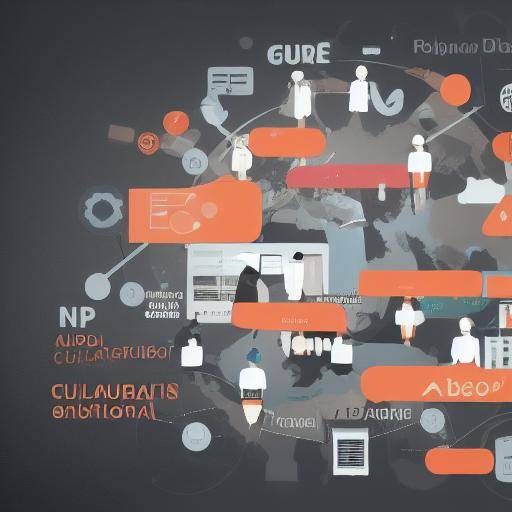
Change management has become an essential element for organizations seeking to adapt rapidly to a constantly evolving business environment. To address these challenges, it is essential to understand the importance of continuing education and adaptability. In this article, we will thoroughly explore the role of continuing education in change management, analyzing its impact, benefits and how it can positively influence the adaptability of companies.
Introduction
Change management is a structured approach to guide individuals, teams and organizations through a transformation process. In a business world driven by technological advances, globalization and constant changes, the ability to adapt effectively has become a key differential for sustainable success. Continuous education emerges as a fundamental pillar to foster adaptability and the ability to manage change.
In this article, we will explore the crucial importance of continuing education in the management of change, analyzing its role in the preparation of individuals and organizations to face challenges, take advantage of opportunities and remain relevant in a constantly evolving business environment. From its historical origins to its impact today, this guide offers a complete vision of how continuing education becomes a strategic asset to boost adaptability in a competitive and dynamic world.
History and Background
Continuous education has been an integral part of human and organizational development throughout history. From ancient Greek academies to contemporary vocational training, their evolution has reflected the constant need to acquire new knowledge and skills to respond to changes in society and the business environment. This section examines the evolution of continuing education from its origins to its crucial role in the management of change.
Historical importance
Continuous education has its roots in ancient societies, where knowledge transmission was fundamental to progress and social cohesion. In Ancient Greece, academies such as the Plato Academy and the Aristotle Lyceum provided a framework for continuing education, focusing on intellectual development and the constant search for truth and knowledge. This approach remains today, underlining the lasting importance of continuing education in the pursuit of excellence and adaptation to change.
Contemporary Evolution
In the modern era, continuing education has gained even greater relevance, driven by rapid technological evolution, change in labour demands and the need for continuous adaptation. In response, educational institutions, companies and governments have promoted ongoing education initiatives to ensure that people are prepared to address emerging challenges and opportunities. This approach has gained greater importance in the management of change, as organizations recognize the need for an adaptable workforce with up-to-date skills.
Case Study: Evolution of Professional Training
An eloquent example of the relationship between continuing education and change management is seen in the evolution of vocational training. In past decades, training focused on acquiring specific skills for a static job. However, with the arrival of automation, artificial intelligence and globalization, the skills required in the workplace have experienced significant change. As a result, continuing education has become a fundamental pillar to ensure that workers maintain their employability and adapt to the continuous transformation of the labour market.
Detailed Analysis
Benefits of Continuous Education in Change Management
Continuous education plays a crucial role in managing change, offering a number of tangible benefits to organizations and individuals. By boosting the acquisition of new knowledge, skills and perspectives, continuing education can strengthen resilience, the development of adaptability and innovation capacity, allowing people and businesses to embrace change with confidence and agility. This section is immersed in the essential benefits of continuing education in the management of change, stressing its positive impact on preparing for future challenges.
Development of Adaptive Skills
Continuous education provides people with the opportunity to acquire and develop essential adaptive skills to face change. By participating in vocational training and development programs, individuals can expand their skills, update their knowledge and keep up with emerging trends in their respective areas. This allows them to adapt quickly to new circumstances, to assume emerging roles and to effectively play in changing environments.
Promotion of Organizational Resilience
For organizations, continuing education fosters organizational resilience by promoting a culture of continuous learning and adaptability. By investing in the professional development of their employees, companies strengthen their capacity to deal with change, mitigate the resistance to transformation and take advantage of new opportunities. In addition, by training their teams to acquire new skills and perspectives, organizations can stay agile and relevant in a dynamic and competitive market.
Business Statistics and Examples
Business statistics and examples can support the importance of continuing education in change management. Relevant data, such as increased post-training productivity, improved retention rate and positive impact on innovation, can convincingly illustrate the tangible benefits of continuing education. In addition, outstanding business case studies that demonstrate the link between continuing education and successful adaptation capacity can provide clarity and credibility to their importance.
Comprehensive review
Practices and Best Practices
Continuous education in change management can be applied in various ways in business environments. Explore case studies and real examples that show how companies have successfully integrated continuing education to foster adaptability and innovation. By highlighting best practices in the implementation of continuing education programs, readers can get practical ideas to apply to their own organizations.
Perspectives of Future Experts and Prognostics
Combine and present the perspectives of experts in the field of continuous education and change management. The opinions of thought leaders, business consultants and academics can enrich the discussion on the role and value of continuing education in a constantly evolving business environment. It also includes forecasts on the future of continuing education and its relation to adaptability, providing a clear picture of emerging trends and future opportunities.
Comparative analysis
Comparison between Change Management, Continuous Education and Adaptability
A detailed comparative analysis between change management, continuous education and adaptability can highlight their fundamental interconnections and differences. By examining how these concepts are intertwined and complemented, readers can gain a wider understanding of their joint importance in a dynamic business environment. Provide concrete examples and scenarios that show how these elements converge to boost organizational and personal success.
Practical Tips and Accessible Recommendations
Strategies for Integrating Continuous Education in Change Management
Provide a variety of practical advice and actionable recommendations to integrate continuing education into change management. From approaches to identifying training needs to the creation of custom learning plans, offer a diverse set of strategies that readers can directly apply in their working environments. Lists with vignettes or enumerations can be useful for clear and concise reporting.
Step-by-step guidelines and detailed explanations
Accompany practical advice with step-by-step guidelines and detailed explanations so that readers can fully understand the implementation of these strategies. By providing a clear guide on how to integrate continuing education in change management, you will be equipping readers with the tools necessary to promote adaptability and resilience in their working environments.
Industry Reflections and Expert Reviews
Interviews and Expert Quotes
Include interviews with renowned professionals and expert appointments that provide a valuable perspective on the subject of continuing education and change management. The opinions of leaders in fields such as business management, organizational development and vocational training can enrich the discussion and provide readers with a practical and forward-looking view on how these elements intertwine in the current business world.
Case Studies and Practical Applications
Examples of Successful Implementation
Explore case studies that demonstrate the successful implementation of continuing education in change management. By revealing tangible results and lessons learned, these case studies will provide a deep insight into how organizations have used continuing education to foster adaptability and successfully address business challenges in a changing environment.
Future Trends and Predictions
Emerging Trends Exploration
Analyse emerging trends related to continuing education, change management and adaptability. In reviewing the current landscape and future projections, it provides readers with an informed understanding of the forces that will shape the relationship between continuing education and adaptive capacity in the future. This analysis can help readers prepare for the challenges and opportunities that will arise in an evolving business environment.
Conclusion
In short, continuing education plays a key role in managing change, enhancing adaptability and innovation both at the individual and organizational levels. Its ability to strengthen resilience, foster the development of adaptive skills and promote a culture of continuous learning makes it a strategic asset to address challenges in a dynamic and competitive business environment. By understanding and taking advantage of the importance of continuing education, companies and individuals can effectively prepare themselves to confront change and thrive in a constantly changing business environment.
Frequently asked questions
What is the importance of continuing education in the management of change?
Continuous education is crucial in the management of change, as it allows individuals and organizations to acquire new skills and perspectives, strengthening their ability to adapt to dynamic environments and embrace innovation in a context of continuous transformation.
How can education continue to contribute to organizational resilience?
Investments in education continue to foster a culture of continuous learning in organizations, strengthening resilience by preparing employees to face challenges, embrace emerging opportunities and quickly adapt to changes in the business environment.
What are the emerging trends in continuing education and its relation to adaptability?
Emerging trends in continuing education include personalized learning approaches, innovative educational technologies and the integration of soft skills, all of which focuses on strengthening people's ability to adapt to changing challenges in the workforce and business environment.
What are the common challenges in the implementation of continuing education programs in business environments?
The implementation of continuing education programmes can face challenges such as resistance to change, availability of resources and the need to align training with the strategic needs of the organization. Addressing these challenges requires a strategic approach, the commitment of leaders and the selection of training solutions that meet the needs of the business.
How can education continue to influence the ability of an organization to innovate and stay relevant?
Continuous education provides employees with the skills and knowledge necessary to embrace innovation, adapt to the changing demands of the market and contribute to the continuing relevance of the organization. By fostering a dynamic learning culture, companies can stay agile and competitive in a constantly changing business environment.
What is the impact of continuing education on employee retention and commitment?
Investment in continuing education can increase the retention and commitment of employees by demonstrating a company's commitment to professional development and the promotion of personal growth. Employees value learning and development opportunities, which can increase their loyalty to the organization and their work satisfaction.
These frequent questions offer a deep insight into the importance of continuing education in the management of change, providing detailed responses that address the different facets of this crucial issue for modern business environments.
In conclusion, continuing education plays a key role in managing change and promoting adaptability in dynamic business environments. In understanding its historical importance, its tangible benefits and its future impact, organizations and individuals can actively embrace continuing education as a key strategy to confront challenges and capitalize on opportunities in a constantly evolving world.

































